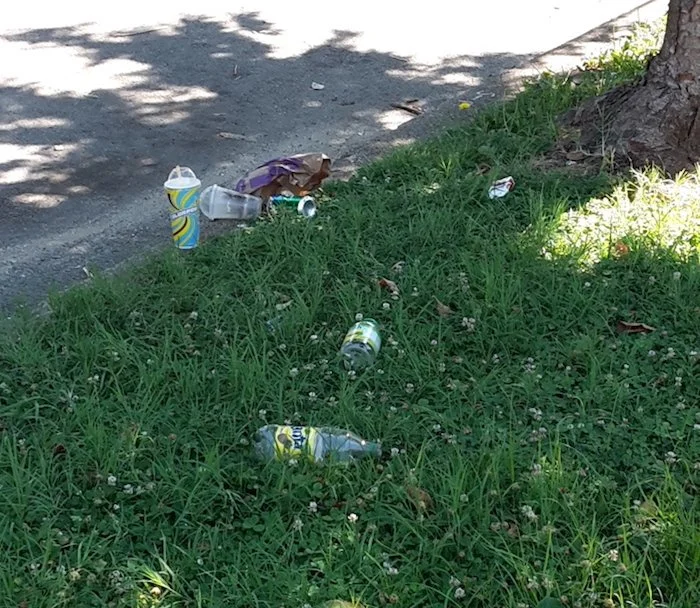It was impossible to ignore him stumbling down street, leaning awkwardly, fighting gravity like a child learning to ride a bike. His incoherent rambling dampened the sunshine and cut through the mystique of our hummingbird-filled community. I closed the shades and locked the doors just like you.
An hour before his one-man parade, he arrived like a ghost and silently slid into our side yard. His body was concealed except for his dirty socked feet that poked out of our bushes. The contents of his bags were strewn around him like an aviation crash site. I approached with a firm, loving tone because he is my son, and he is chronically ill. In the span of weeks, methamphetamines and fentanyl changed his status from exceling at his job, to functional addict, to being kicked out of a sober living home.
Prior to this episode, we were in limbo; the space in time when he is clear minded enough to know that he needed help, but too clear minded to immediately pursue it. The precursor to detox is escalation: an epic binge that he once explained justifies the horrific, withdrawal symptoms. During these times, I struggle to remain close to him, to remind him he is loved and valued.
I listened patiently as his thoughts ran over top of one another and watched in horror as his chest inexplicably and repeatedly recoiled like a soldier being hit by shrapnel. He reemphasized his need to sort through the same bins that he spent hours with the night before. Sadly, his possessions: random shoes without laces, heavyweight hoodies, notebooks, paint pens and collectibles are the remnants of nearly a decade of restarts line an entire wall of our garage. After his departure the night before, I combed through the boxes and bags from the last sober living home and tossed straight razorblades, defrosted frozen foods, rolls of foil and a Tupperware of spoiled beef stew I had made weeks earlier. My love for my son is powerful and vulnerable. I’ve learned the hard way that an appropriate distance is required to protect my health. I knew I could not to repeat a prolonged interaction so soon.
As we spoke, his hunched 6’2” frame became visible to our street and the neighbor who absently sipped coffee on his patio. He clutched his sweatpants against his toddler-sized waist but was unfazed by my reminder that someone was likely to call the police. He scoffed at a ride to the detox center or a hospital for help. His single focus of accessing the garage was only interrupted by him intermittently sorting through the explosion of items in the yard. While he searched for something, real or imagined, every car and every person that crossed our path increased my anxiety. I cursed out loud; time was running out for him to leave without incident. The choice was impossible: let him stay in the yard and risk police contact or allow him to tear through the stacks. I gambled on a protective measure and called the police myself which would either force him to leave before they arrived or allow me to tell his story before it was relayed by a frightened witness.
He was incensed by the betrayal and swiped at the ground to gather his items, but they repeatedly slipped through his fingers. His movements were reminiscent of a car dealership blow up man. He shoved his suitcase back into the bushes, looped two bags over his scrawny shoulders and navigated his rubber band legs away.
The police officer who arrived framed the situation with ambivalence: “If I find him, the only place that I can take him is jail.” My comments that criminalization does not change addiction and if tough love worked, he’d be cured, were met with a shrug. His outrageous condition made it easy for others to believe this existence is either wanted or deserved. However, my son finds only misery in the high, his craving for drugs disgusts him and he is ashamed of what he has made of his life. Ironically, he is closer to someone you know than not. Cleaned up, he is handsome and charming. He works in hospitality and his gorgeous smile, chiseled face, and long lashes attract attention, yet he doesn’t feel worthy. He was recently taken aback by the number of women who asked him out and was stunned by one who grabbed his iPhone to enter her number while he was at work.
My son is more beautiful on the inside, introspective and incredibly kind. In fact, the catalyst for using this time was the sudden death of his rescue dog. His shadow who he indulged with daily miles long walks. A brief chemical escape is impossible, he cannot rebound from drugs and alcohol until he is debilitated.
As his family, we have the choice of a balcony view to what could be a prolonged death or giving up on him. We individually decide what we can manage. Today only his aunt and I remain in contact. My slivers of hope have been gained through the knowledge and insight of my sisters at Heart of a Warrior Woman. They help me to remain engaged and available to witness his courage. He has fought to regain normalcy and more times than I can count, has reclaimed his life. Once the animalistic drive for drugs is reduced, he revisits his shortfalls, apologizes, and his compassionate demeanor returns. But this awareness is no guarantee. Addiction is often the result of unresolved trauma and healing takes time, statistics show that many relapses and recoveries will occur before longer-term health is achieved. The early stages of sobriety are precarious. A simple mistake at work or a reminder of his failure, can bring an avalanche of self-loathing. The biggest risk in remaining close to my son is tumbling with him.
The day after his visit, I saw Facebook post on our small community page warning everyone about him, calling him “the person who set up camp.” Moments later I read his text confirming arrival at a detox facility. It said, “I Love you I am going to sort myself out. Thank you both for everything, even when I am not at my best, I still notice all you do. I need to be that for myself.”
For now, dear neighbors accept my apologies for the situation. We can consider it contained much like an oil spill: the obvious has been taken care of, but the long-standing impact remains to be seen.

